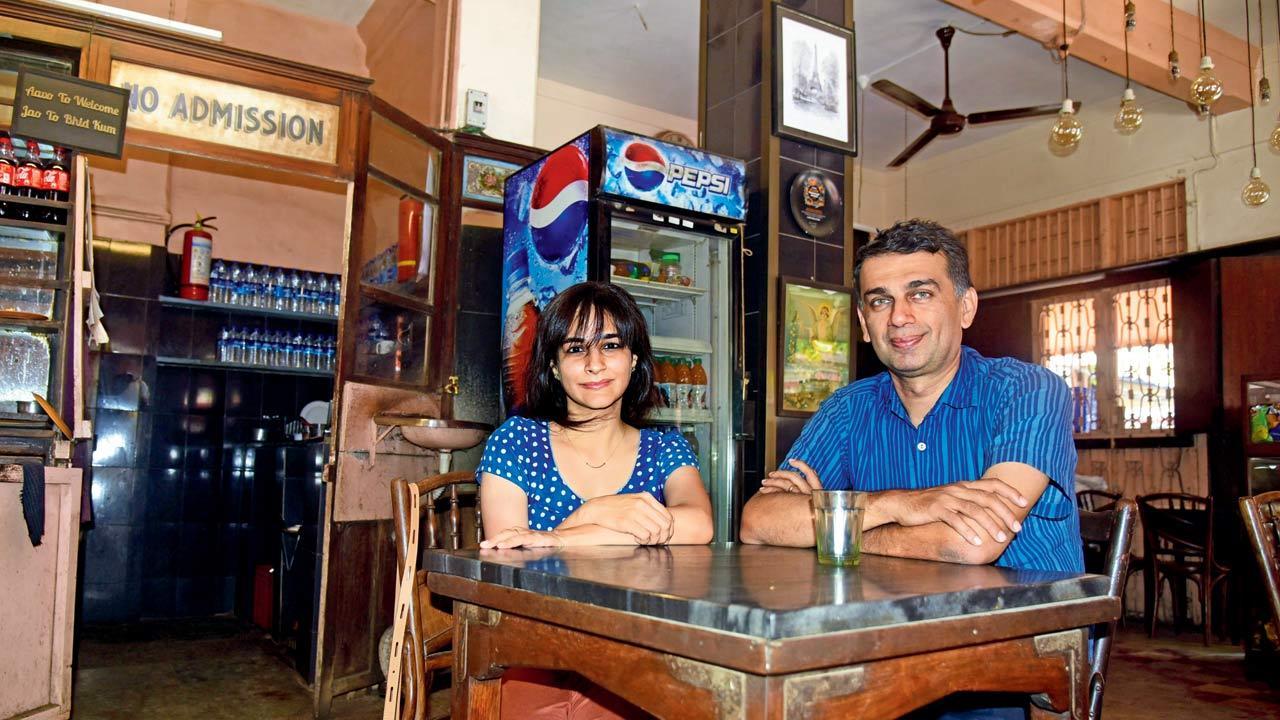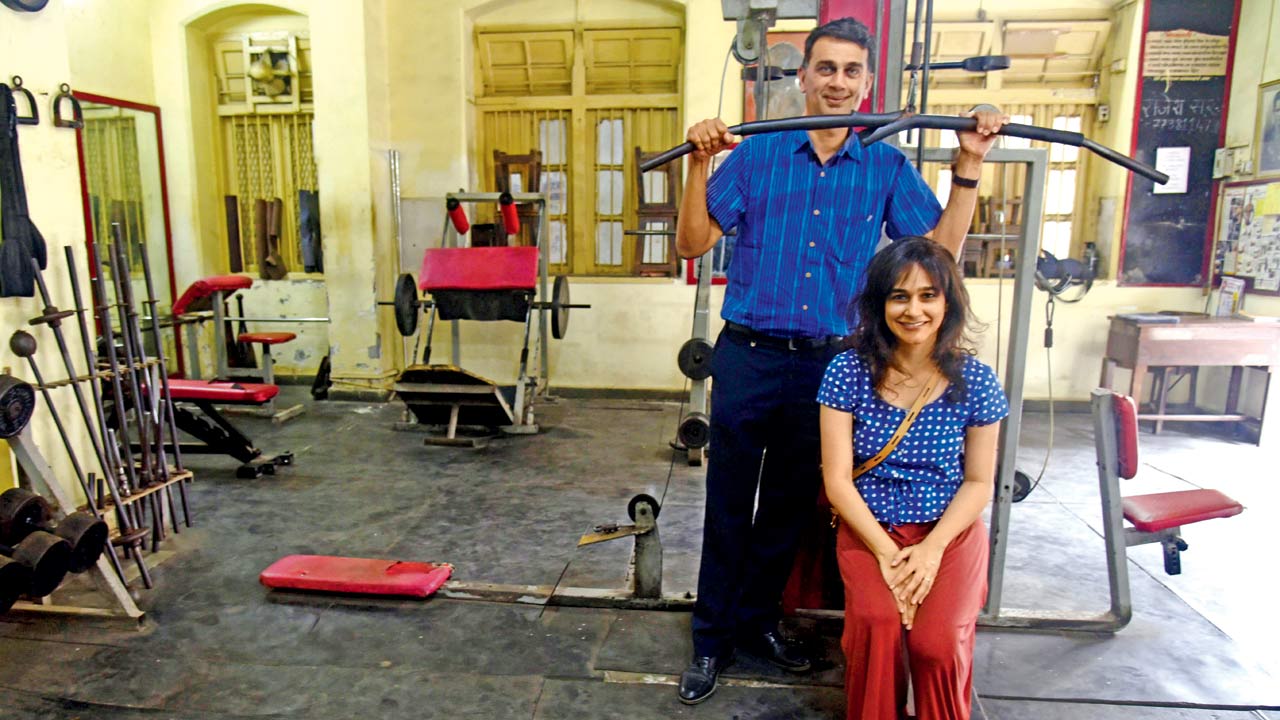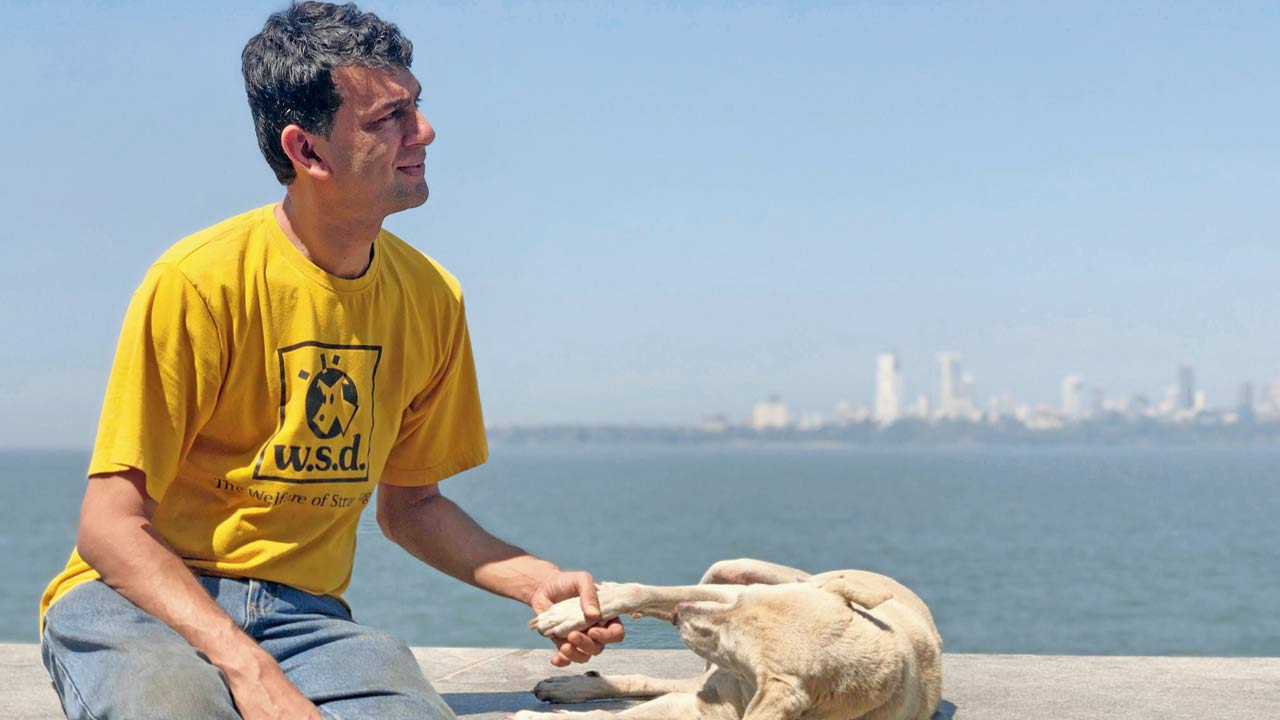Animal activist Abodh Aras and city chronicler Simin Patel bonded, in the city’s worst isolation, over feeding strays and Irani cafes

Simin Patel and Abodh Aras at Cafe de la Paix and Famous Physical Culture Home, Girgaum. Pics/Atul Kamble
 Abodh Aras, 52, CEO, The Welfare of Stray Dogs
Abodh Aras, 52, CEO, The Welfare of Stray Dogs
ADVERTISEMENT
Simin Patel, 38, founder director, Bombaywalla Historical Works
Better known as Miss Bombaywalla, Dr Simin Patel helms Bombaywalla Historical Works. Showcasing Bombay’s built environment and social history, the organisation turns 10 on Navroze day this week. It engagingly profiles local establishments like bakeries, laundries and lodging houses, which have negotiated change through colonial and contemporary settings, telling their stories in photographic essays. A Clarendon Scholar at Balliol College, she completed her PhD in Modern South Asian History from the University of Oxford.

Close among the group of friends meeting at Cafe de la Paix (CDLP) in Girgaum, Abodh Aras opted out of the corporate sector that he started a career in with an MBA in marketing. Tugged instead by his passion for street animals, he joined The Welfare of Stray Dogs (WSD) in 2000. The NGO extensively delivers pet food to dedicated community feeders and WSD volunteers in neighbourhoods across the city. Describing himself as one who would not live anywhere else in the world, Abodh loves Bombay “for its people, its heritage, its street animals and its way of life”.
...
Abodh Aras: Though Simin and I are Tardeo neighbours, we really interacted when we went through the city with WSD volunteers during COVID. The pandemic was bad for humans and animals. Closed shops and sealed buildings left them starving for weeks initially. Yet, one never heard Bombay’s poorest people say, “Feed us, then the animals.” Only once did a chaiwala at Fort reveal he hadn’t eaten for three days. Immediately, Gustad [Irani of CDLP] donated some sustaining khichdi. We stocked food for animals in his storeroom.
Simin Patel: Abodh used to watch me interviewing the eccentric Rashid Khosravi at CDLP, one of the main characters of my book on Bombay’s Irani restaurants, which dives into the world of Irani strongmen and dons and the cafes they operated from. Before that, I remember Abodh from the Bombay lecture circuit, attending talks at JJ College of Architecture, Mani Bhavan and Asiatic Society. Being Bombaywallas from the same street definitely forged
our friendship.

AA: The city is particularly compassionate towards animals. Its melting-pot of cultures fosters tolerance and warmth. Our experiences become equalisers—the bond of local trains, pavement hawkers. Within such a working-class city, animals organically find their way into spaces we work or live in.
SP: Abodh’s unique way of navigating the city got amplified in COVID times. With a red Essential Services sticker on his Wagon R, he delivered dog food to dedicated WSD volunteers in different neighbourhoods. After chai at the cafe, I’d jump into the back seat with 100 kilos of pet food for company and we drove
to distribute.
AA: Girgaum is our stomping ground. I refer to Simin as “The Queen”. She’s easy to tease, very sporting. Metal Man is what I call her husband Sameer; his surname is Pitalwalla. Why the “Queen” title? We live right beside Bhaji Gali, but she knew just Food Hall on
Pedder Road.
I got to know Simin properly while intervening in my mother tongue for her Bombaywalla article on Famous Physical Culture Home on Parekh Street here.
SP: A selfish reason to get better acquainted—I needed a good Marathi translator and interlocutor! Abodh helps with translations and proofing. Keeping me grounded if I risk a bit of Queengiri, he introduces me to Girgaumkars like Ramesh Mahajan, patriarch of Madhavashram Lodging House and the
calendar seller with the Congress topi who is the first to keep Kalnirnay calendars.
Our CDLP group met in the evenings at New Yazdani & Co. Permit Room on Grant Road, where Keka Irani treated us to nuts, snacks and drinks at cost price. It shut last year. Madhavashram was demolished. In between, Dreamland Cinema has been broken. This is the story of Girgaum. The city structure itself is my archive.
AA: Simin undertakes what she does with total integrity. She researches from every angle with planning, wanting the best and bringing out the best. I feel she should actively conduct walks and hold programmes, not do solitary, scholarly documentation.
SP: WSD has a lovely design history and a whole huge world can open up with more merchandise. WSD calendars, fringe bags and bookmarks are my favourite gifts. His influence makes me incorporate little dog stories into walks that I take people on.
AA: Each creature has a history and a relationship with us, they aren’t nameless or faceless. I’ve written about the memorial statue of the Tatas’s pet dog at Esplanade House. She points it out on a walk.
SP: CDLP is the glue binding our group: Mark and Giovanni, cyclists from SoSoBo [South South Bombay] ie Colaba; Neeta Kolhatkar, a journo from the CDLP lane; Mitesh, Abodh and me from CoSoBo [Central South Bombay].
AA: Mitesh is my school pal and Mark a techie who has shot photos for WSD calendars.
SP: Abodh knows the whole world. If it’s a bakery owner, he’s supplying bread to the streeties. Others are WSD volunteers and lawyers fighting pro-bono for the charity. Lately, I’ve introduced him to some OG Girgaum establishments like Marlex Tailors [actor Jeetendra’s favourite], while popping my collar.
It is the ease and levels at which he accesses the city that are remarkable, different from my inroads. One day he’s in Virar, the other in Navy Nagar. Wherever he is, he befriends the streeties, if he doesn’t know them well already.
AA: Street dogs contribute a lot to our love for heritage. I roam the city attentively because of them.
SP: We like the hustle-bustle of Bombay, but also the retreat within to its quieter places. As neighbours the city holds us together in obvious ways. There is great comfort realising that Abodh is a building away. He has a protective presence.
We became friends later in life, in what Vir Sanghvi calls “early middle age”, both set in our ways. I think in “old age” we’ll meet on the bench outside Chikhalwadi and watch the world go by.
Author-publisher Meher Marfatia writes monthly on city friendships. You can reach her at meher.marfatia@mid-day.com/www.meher marfatia.com
 Subscribe today by clicking the link and stay updated with the latest news!" Click here!
Subscribe today by clicking the link and stay updated with the latest news!" Click here!







